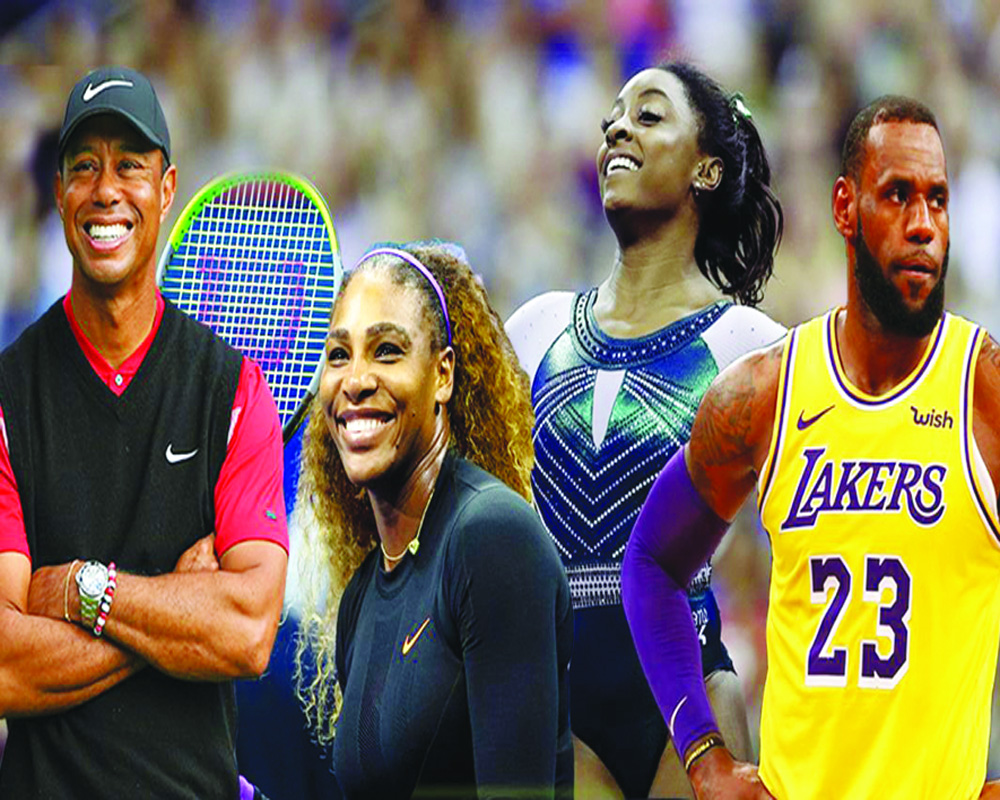Sports have long transcended mere competition, emerging as a profound social force capable of uniting diverse communities and inspiring meaningful change
Nelson Mandela, a Black nationalist and the first Black president of South Africa, once asserted, “Sport has the power to change the world. It has the power to inspire. It has the power to unite people in a way that little else does. It is more powerful than governments in breaking down racial barriers. It laughs in the face of all types of discrimination.” This sentiment underscores the profound influence sports can have on society.
Recently, Indian shooter Manu Bhaker, the first female athlete from her country to win an Olympic medal in shooting, echoed this sentiment, emphasising that one does not have to pursue conventional careers like medicine or engineering. She expressed that "sports life is a beautiful life," showcasing how sports can be a fulfilling and empowering path. The release of the Ga-Mashie Boxing Heritage photobook and video in Ghana highlights the socio-cultural dimensions of sports, suggesting that these occurrences should not be viewed in isolation but rather as part of a broader sociological and anthropological landscape. Throughout history, from ancient traditions to contemporary contexts, sports have blurred the lines between sociology and anthropology, influencing everything from local culture to global events.
Breaking Down Barriers
Sports possess a unique ability to dismantle barriers related to race, gender and disability. Historically, they have served as a battleground for challenging exclusionary practices and promoting inclusivity. In ancient Greece, for instance, Spartan girls participated in physical training and competed in sports, an early testament to gender equality in athletics. Ghana, renowned for producing world-class boxers, has long viewed the sport as a symbol of hope and resilience.
Racial integration in sports has often signified broader societal changes. A landmark moment in American history was Jackie Robinson's breaking of Major League Baseball’s colour barrier in 1947. His courage in facing racial hostility while excelling on the field not only inspired future generations of athletes but also set the stage for the Civil Rights Movement.
Catalyst for Social Change
Beyond unification, sports have historically acted as powerful catalysts for social change. Athletes often leverage their platforms to advocate for justice and equality, using their visibility to challenge societal norms and highlight injustices. The Paralympic Games, which began in 1960, have been instrumental in promoting inclusion and accessibility for athletes with disabilities.
Sports icons like Muhammad Ali, Jackie Robinson, and Billie Jean King have used their influence to push for racial and gender equality. Ali’s refusal to be drafted into the Vietnam War due to his opposition to racial injustice is one of the most significant acts of protest in sports history. The 1968 Olympics in Mexico City became a global stage for protest when American sprinters Tommie Smith and John Carlos raised their fists in a Black Power salute during the medal ceremony, drawing attention to the struggles of African Americans and other marginalised groups.
Moreover, sports diplomacy has been a strategy for nations to ease tensions. A notable example is the 1971 “Ping-Pong Diplomacy” between the United States and China, where a simple table tennis match opened the door to diplomatic relations between the two superpowers.
Community Development
Sports play a crucial role in community development, especially in underserved areas. Youth sports programmes provide numerous benefits, including improved physical health, enhanced social skills, and academic achievement. For many, these programmes serve as a safe haven, offering structure, mentorship, and opportunities that might otherwise be unavailable. At the community level, sports unite people around common goals. Local teams often foster a sense of pride and identity, bringing communities together to support their athletes. This sense of unity not only strengthens social bonds but also helps reduce crime rates and enhance community cohesion.
Cultural Dimensions of Sports
The sociological and anthropological impact of sports is undeniable. In India, for instance, sports reflect a complex interplay of caste, community, gender, and sexuality. Historical traditions such as ‘Mallakhamb’, an ancient Indian martial art that blends yoga and exercise, illustrate how sports can embody cultural heritage. Similarly, traditional games like ‘Kabaddi’ in Odisha and ‘Jallikattu’ in Tamil Nadu showcase the socio-cultural significance of sports in various regions.
Sports events and local traditions can serve as powerful tools for social change, transforming communities and promoting inclusivity. The 1995 Rugby World Cup in South Africa is a prominent example, where sports helped bridge the divide between black and white South Africans during Mandela's presidency.
A Continuing Legacy
The stories of athletes who have championed justice, the communities transformed by sports initiatives, and the barriers dismantled through athletic achievement illustrate the transformative power of sports. The recent resurgence of movements like Black Lives Matter has reemphasised the social power of sports. Athletes across various leagues have taken stands against racial injustice, using actions like taking a knee during the national anthem to raise awareness. Major sports organisations have embraced these movements, reflecting a growing recognition of the role sports play in advancing social justice.
As we look to the future, it is evident that sports will continue to be a powerful force for good, uniting people, inspiring change, and contributing to a better world. The power of sports to foster connection and advocate for justice is more important than ever.
(The writer is associate professor and head, Journalism and Mass Communication, Rama Devi Women's University, Bhubaneswar; views are personal)


























